|

photo - mw
_______________________
I Am All Over The Oblique Ascensions Required for the Process of Achieving Aphesis
Sharon Mesmer
Untroubled by history, religion or research, I am passed out in this here alley
halfway between the smell of stale piss and rat droppings, naked and titty-pink
in the cold dim dawn, and it’s Wednesday.
Wednesday is considered either the third or fourth day of the week, depending on
whether you start your week on Sunday or Monday. That’s why the Dutch call it
something I can’t pronounce. Here in the U.S. we call it “hump day.” Which is what
French people call every day, when they’re not using the term “le weekend.”
There’s lonely weekends and there’s lost weekends. Some weekends you’re the
dog, other weekends you’re the hydrant. “The Lost Weekend” won the Academy
Award in 1945. But Freddy Fender had a hit with “Wasted Days and Wasted
Nights” in 1975. In the words of the husband of the woman who wrote
Frankenstein: “The barely articulate Jack White has never found weekends
particularly sad.”
...(more)
13 poems
Sharon Mesmer
peep/show
PEEP/SHOW
....A Taxonomic Exercise in Textual and Visual Seriality....
Issue # 2 - The Carnival
_______________________
J'Accuse: Sweden, Britain, and Interpol Insult Rape Victims Worldwide
Naomi Wolf
Never in twenty-three years of reporting on and supporting victims of sexual assault around the world have I ever heard of a case of a man sought by two nations, and held in solitary confinement without bail in advance of being questioned -- for any alleged rape, even the most brutal or easily proven. In terms of a case involving the kinds of ambiguities and complexities of the alleged victims' complaints -- sex that began consensually that allegedly became non-consensual when dispute arose around a condom -- please find me, anywhere in the world, another man in prison today without bail on charges of anything comparable.
Of course 'No means No', even after consent has been given, whether you are male or female; and of course condoms should always be used if agreed upon. As my fifteen-year-old would say: Duh.
But for all the tens of thousands of women who have been kidnapped and raped, raped at gunpoint, gang-raped, raped with sharp objects, beaten and raped, raped as children, raped by acquaintances -- who are still awaiting the least whisper of justice -- the highly unusual reaction of Sweden and Britain to this situation is a slap in the face. It seems to send the message to women in the UK and Sweden that if you ever want anyone to take sex crime against you seriously, you had better be sure the man you accuse of wrongdoing has also happened to embarrass the most powerful government on earth....(more)
_______________________

photo - mw
_______________________
The Book of the Dead
Muriel Rukeyser
These roads will take you into your own country.
Seasons and maps coming where this road comes
into a landscape mirrored in these men.
Past all your influences, your home river,
constellations of cities, mottoes of childhood,
parents and easy cures, war, all evasion’s wishes.
What one word must never be said?
Dead, and these men fight off our dying,
cough in the theatres of war.
What two things shall never be seen?
They : what we did. Enemy : what we mean.
This is a nation’s scene and halfway house.
(....)
Half-memories absorb us, and our ritual world
carries its history in familiar eyes,
planted in flesh it signifies its music
in minds which turn to sleep and memory,
in music knowing all the shimmering names,
the spear, the castle, and the rose.
But planted in our flesh these valleys stand,
everywhere we begin to know the illness,
are forced up, and our times confirm us all.
(....)
Over the country, from islands of Maine fading,
Cape Sable fading south into the orange
detail of sunset,
new processes, new signals, new possession.
A name for all the conquests, prediction of victory
deep in these powers.
Carry abroad the urgent need, the scene,
to photograph and to extend the voice,
to speak this meaning.
Voices to speak to us directly. As we move.
As we enrich, growing in larger motion,
this word, this power.
Down coasts of taken countries, mastery,
discovery at one hand, and at the other
frontiers and forests,
fanatic cruel legend at our back and
speeding ahead the red and open west,
and this our region,
desire, field, beginning. Name and road,
communication to these many men,
as epilogue, seeds of unending love.
...(more)

Muriel Rukeyser
December 15, 1913 – February 12, 1980
photo - Imogen Cunningham
Out of Silence: Selected Poems
Muriel Rukeyser
google books
_______________________
Poetry in 1960 — A Symposium
video and audio
Al Filreis, Bob Perelman, Ron Silliman,
Rachel Blau DuPlessis, Chris Funkhouser, Erica Kaufman,
Judith Goldman, Kristen Gallagher, Danny Snelson,
Michael S. Hennessey, Charles Bernstein & Mel Nichols

The Century of the Self
Adam Curtis
director of "the power of nightmares"
youtube
1
Happiness Machines
2
The Engineering of Consent
3
There is a Policeman Inside All Our Head: He Must Be Destroyed
4
Eight People Sipping Wine in Kettering
Century of the Self : Adam Curtis : Free Download & Streaming : Internet Archive
commentary by George Prochnik
provided by Lebbeus Woods
How did British and American liberal politics devolve to the point where eight people sipping wine and popping back Cheerios have gained the power to define the policy choices of a national leader? How did our society become so selfish, trivial, materialistic and enslaved to its bottom-most register of desires? What enabled our businesses to gain a dictatorial control over the public imagination? Why did everything get so dark, dystopic and just plain dumb?
Adam Curtis’s important film, The Century of the Self, supplies an answer to all these questions—and more. “There’s A Policeman Inside All Our Heads: He Must Be Destroyed,” and “Eight People Sipping Wine in Kettering” are the two concluding episodes of a sweeping production. Curtis tracks the path by which a broad cultural revulsion against the notion of being possessed by corporate sprachen inspired a multifold liberation movement that crumpled into a new, ultimately vapid, ideal of self-empowerment, which, in turn, provided fertile soil for big business interests to sow a hyper-crop of rampant consumer desire. For the final twist, Curtis shows how the techniques developed by corporations to sell products were imported into the political arena. ...(more)
_______________________
from Sub Divo
Norm Sibum
Manchester Review
4:69CE
— The empire no longer the plaything of the Julio-Claudians, his eyes on the future health of the state and its finances, the unpopular Galba adopted Piso Licianus and...et cetera and so forth.
Do you, Labrosse, think you can find a hole,
Climb in, and hide from my intensity? Galba was murdered, hacked to bits.
Piso was hauled out of sanctuary and finished off.
The empire proceeded on its merry way
By way of mayhem, the odd decent moment.
And men like us, civil, inoffensive sceptics,
Bottom’s up, and to your health, sport,
Over the course of a few corrosive centuries,
Drank our wine like it was so much sunset
Poetry, and one by one, faded from the picture.
...(more)
via the page
Norm Sibum
_______________________
Fernando Pessoa and the multiple faces we show on the net
Syma Tariq
_______________________
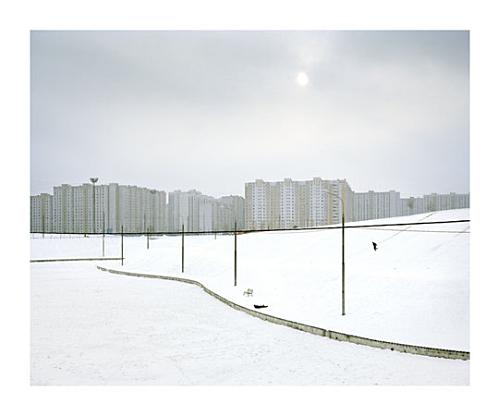
The edge
Alexander Gronsky
via Junk for Code _______________________
Hotel Lautréamont
John Ashbery
(....)
The horns of elfland swing past, and in a few seconds
the world, as we know it, sinks into dementia, proving narrative passé,
or in the finale of the Sibelius violin concerto.
Not to worry, many hands are making work light again.
The world, as we know it, sinks into dementia, proving narrative passé.
In any case the ruling was long overdue.
Not to worry, many hands are making work light again,
so we stay indoors. The quest was only another adventure.
...(more)
.....................................................
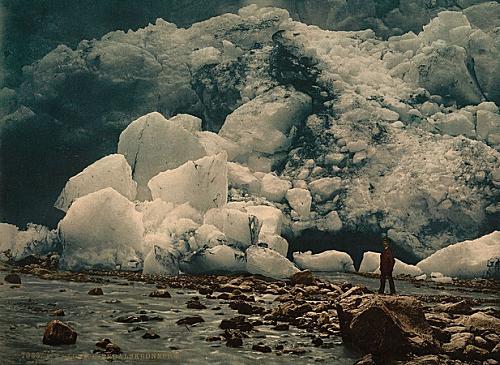
Loen, Kjendalskronebrae,
Nordfjord, Norway, c. 1890
photochrome print
Detroit Publishing Co.
1905
(Library of Congress)
John Ashbery: Hotel Lautréamont (Elfland Version)
Tom Clark
_______________________
The Fiddleback
a new online bi-weekly
Jeff Simpson - Founding Editor
_______________________
Welcome to debt peonage.
-
Michael Hudson
.....................................................
The Largest Welfare Check Ever Written
The Rise of the Wall Street Ruling Class
Thomas Volscho
_______________________
The State of The Music Industry & the Delegitimization of Artists
a Six Part Series
Jeff Price
The reality is:
* More musicians are making money off their music now then at any point in history.
* The cost of buying music has gotten lower but the amount of money going into the artist's pocket has increased.
* There are more people listening, sharing, buying, monetizing, stealing and engaging with music than at any other point in history.
* There are more ways for an artist to get heard, become famous and make a living off their music now than at any point in the history of this planet.
* Technology has made it possible for any artist to get distribution, to get discovered, to pursue his/her dreams with no company or person out there making the editorial decision that they are not allowed “in”.
* The majority of music now being created and distributed is happening outside of the “traditional” system.
And to reiterate, sales are up… ...(more)
via Copyfight
_______________________
Imperial Cityscapes
Urban History and Empire in the United States
neo-americanist
an inter-disciplinary online journal for the study of America
_______________________
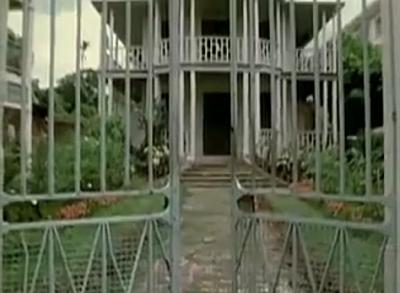
La Soufričre
Waiting for an Inevitable Disaster
Werner Herzog
1977
youtube
1 2 3
_______________________
The Culture of Violence in the American West:
Myth versus Reality
Thomas J. DiLorenzo
_______________________
The Seven Myths of “Slums”
Adam W. Parsons
Dissident Voice
_______________________

Borderlands
Eirik Johnson
_______________________
Mediactive - Creating a User's Guide to Democratized Media
Dan Gillmor
_______________________
North of Invention: A Canadian Poetry Festival
Kelly Writers House, University of Pennsylvania
January 20 - January 23
A. Rawlings • Fred Wah • Roy Miki • Marlene Nourbese Philip • Stephen Collis • Nicole Broussard • Jeff Derksen • Jordan Scott • Adeena Karasick • Lisa Robertson

the sky still farther away
Herbert Pfostl's Paper Graveyard
via It #Π
_______________________
Air the Trees
Larry Eigner
the disappearance of matter
where is the
end of the poem
tired eyes
the sun travels
and allows dream
(....)
seaweed smells
in the breeze sewer-gas
blowed up the drugstore
injuring several that's what
the hospitals are for, with
quiet wards
50
unscathed
but shaken
to bear miracles
" the contents
first taken for blood
so horror, so easily
arrived
from the day
so here come random eyeteeth
crashing out through the window like
bony fish
(yet the glass hurt
a faustian
flame by the soda fountain
and above the arena
where the circus's
3 rings go in
still banked with its
accessory porous world
tiers checked to the nooks of its sky
over the railroad station
...(more)
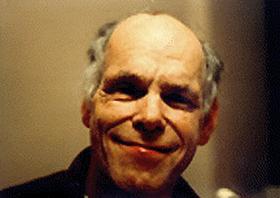
Larry Eigner
August 7, 1927 – February 3, 1996
Honoring the Life and Work of Larry Eigner
The Holloway Series in Poetry Speakers: Robert Grenier, Lyn Hejinian, Richard Eigner, Rebecca Gaydos, Kit Robinson, Michael Davidson, George Hart, Albert Gelpi, Hillary Gravendyk, Jack Foley, Adelle Foley, Norma Cole and Robert Hass
Larry Eigner on . . .
the glade of theoric ornithic hermetica
Steven Fama (....)
A poem can’t be too long, anything like an equatorial superduper highway girdling the thick rotund earth, but is all right and can extend itself an additional bit if you’re sufficiently willing to stop anywhere.(....)
Distances between words are not negligible elements of a piece: pauses or silences.
Immediacy and force take priority over notes clarifying allusions.
...(more)
poet-readers on the poetry of Larry Eignera gathering Steven Fama
W.C. Williams / Denise Levertov / Robert Duncan
Cid Corman / Clark Coolidge / Barrett Watten
Ron Silliman / Charles Bernstein / Robert Grenier
Curtis Faville / Michael McClure / Benjamin Friedlander
Michael Davidson / Jack Foley
Larry Eigner at PennSound
The Body of the Text:
Cerebral Palsy, Projective Verse and Prosthetics in Larry Eigner’s Poetry Seth Forrest jacket
_______________________

Head in Landscape
Mark Tobey
1957 _______________________
Zone by Mathias Énard
review by Steve Mitchelmore
Zone needs to be recited; one needs to be submerged in the disturbing pace of its narrative and disruptive power of its detail to appreciate why a summary is both easy and impossible.
(....)
Mirkovic's present might be said to be one in which unresting death is faced when the attenuated husks of religious or nationalist myth have been breached. Mirkovic is the exposed core and the choice between memory and forgetting is impossible; a brilliant future depends on both. His existence in writing – sustained, incessant, brutal, resourceful to the brink of insanity – thereby becomes necessary for survival. Everything is coursed into a recital, a unique poetic ritual of mourning to reach the destination that is itself. Zone is indeed soaked in trauma yet, in Mathias Énard's hands and Charlotte Mandell's fluid translation, it is exhilarating, and has to be read.
ZoneMathias Énard translated by Charlotte Mandell "Zone": An Excerpt of a Sentence
... maybe it’s because of that volcano that Malcolm Lowry settled in Taormina in 1954, in that village that looks so pretty it seems fake, he had written Under the Volcano ten years earlier, maybe it was his wife Margerie who chose the destination, a change of air, Lowry the drunkard had definite need for a change of air, he joined the contingent of Anglo-Saxons who peopled the Zone, Joyce, Durrell, Hemingway, Pound the fascist and Burroughs the visionary, Malcolm didn’t let go of his bottle as he watched the swordfish gleam in the Bay of Naxos, he got drunk morning to night with a serious steadfastness, their little flower-covered house is too beautiful for him, he says, it’s all too beautiful, too brilliant, too luminous, he can’t manage to write, not even a letter, his eyes dazzled by the too-blue Mediterranean...(more)
_______________________
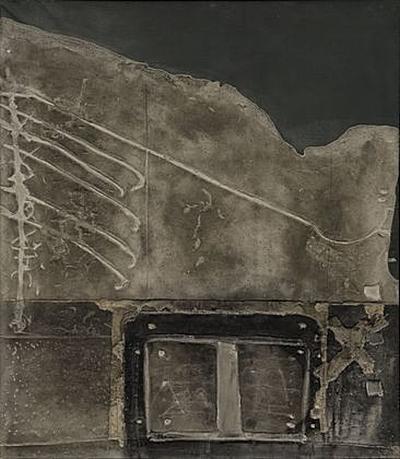
Gray Relief on Black
1959
Antoni Tąpies
Dec. 13, 1923
_______________________
4 poems
Meredith Quartermain
Green Integer Review
Matter 4: Organic in-organs
So trifling to occur together
the finlike limbs of hard and soft
light-dim-darken our shades of difference,
our bumps and ropes of plumage
in flashes, flights and tints of mind.
What matters velvets a pierced dream.
What matters plays the dugong to the whale.
What matters runs the greyhound and the racehorse
to thickened stems of common and swedish turnips –
the perfect elastic of similar,
the bountiful membrane among drums of conjecture.
...(more)
Recipes from the Red Planet: Meredith Quartermain’s Martian Feast
Camille Martin
Recipes from the Red Planet
Meredith Quartermain
Susan Bee, illustrator
(Toronto: Book Thug, 2010)
Meredith Quartermain at EPC
_______________________
 companions
Herbert Pfostl's Paper Graveyard
_______________________
Personal Reflections on Diagnosis
Mark Vonnegut
Journal of Mental Health,
... My delusional world always felt kind of tinny and hollow, but that never helped me get out of it.
Today it is nice to be able to entertain odd thoughts without having to marry them all. I can think whatever I want. Entertaining odd thoughts would not make you crazy. Refusing to entertain odd thought would not make you well.
During my recovery from my last episode a very wise friend told me that other people's business was not my business. I felt insulted that he bothered to tell me such an obvious thing. He then said that what other people thought about me was not my business. Harder but still not earth shattering. He then went on to say that what I thought was not really my business either, which has kept me puzzled ever since. I have come to believe that I am at my best and that it is a beautiful world when my feelings are like the weather and that what I think is not my business.
I do not think the people today who start hearing voices, stop eating and sleeping, and run amuck are likely to get good treatment. Having more knowledge, better diagnostic capabilities, better medications with fewer side effects, can not make up for the fact that most patients are being treated by doctors, therapists, and hospitals, who are operating under constraints and incentives that reward non-treatment, non-hospitalization, non-therapy, non-follow-up, non-care....(more)
_______________________

Portrait dans un miroir
1937
Raoul Ubac
1910 - 1985
_______________________
Diagnosing Clapham Junction syndrome
Sir Terry Pratchett
Journal of Mental Health,
It occurred to me that at one point it was like I had two diseases – one was Alzheimer’s and the other was knowing I had Alzheimer’s. There were times when I thought I’d have been much happier not knowing, just accepting that I’d lost brain cells and one day they’d probably grow back or whatever. It is better to know, though, and better for it to be known, because it has got people talking, which I rather think was what I had in mind. The $1million I pledged to the Alzheimer’s Research Trust was just to make them talk louder for a while.
It is a strange life when you ‘‘come out’’. People get embarrassed, lower their voices, get lost for words. Fifty per cent of Britons think there is a stigma surrounding dementia but only 25% think there is still a stigma associated with cancer. It seems that when you have cancer you are a brave battler against the disease, but when you have Alzheimer’s you are an old fart. That’s how people see you. It makes you feel quite alone. It seems to me there’s hardly one family in this country that is not touched by the disease somehow. But people don’t talk about it because it is so frightening. I swear that people think that if they say the word they’re summoning the demon. It used to be the same with cancer.
via Mind Hacks
_______________________
how to dance
sitting down
-
(Charles Olson, “Tyrian Business”)
Missing Larry: The Poetics Of Disability In Larry Eigner
Michael Davidson
(....)
...a poetics––as much as a politics––of disability is important: because it theorizes the ways that poetry defamiliarizes not only language but the body normalized within language. A poetics of disability might unsettle the thematics of embodiment as it appeared in any number of literary and artistic movements of the 1960s. This same thematics was shared with the New Left in its stress on the physical body as localized site of the social. Whether in feminism’s focus on reproductive rights, youth culture’s fetish of sexual liberation, cultural nationalist celebrations of “race men,” or the anti-war movement’s politics of heroic resistance, the healthy, preferably young body becomes a marker of political agency. Within the world of art, this same emphasis on a normalized body emerged through a set of imbricated metaphors––gesture, breath, orality, performance, “leaping” poetry, “action” painting, projective verse, deep image, happenings, spontaneous bop prosody––that organized what Daniel Belgrad has called “the culture of spontaneity” in the 1960s. While a poetics of embodiment foregrounds the body as source for artistic production, it nevertheless calls for some unmediated physical or mental core unhampered by prostheses, breathing tubes, or electric scooters.
What would happen if we subjected a poetics of embodiment to the actual bodies and mental conditions of its authors. What would it mean to read the 1960s poetics of process and expression for its dependence on ableist models, while recognizing its celebration of idiosyncrasy and difference? By this optic, we might see Robert Lowell, Anne Sexton, and John Berryman not only as confessional poets but as persons who lived with depression or bi-polar disorders, for whom personal testimony was accompanied by hospitalization, medicalization, and family trauma. What would it mean to think of Charles Olson’s “breath” line as coming from someone with chronic emphysema exacerbated by heavy smoking? What if we added to Audre Lorde’s multicultural description of herself as a Black, lesbian, mother, “sister outsider,” a person with breast cancer (as she herself does in The Cancer Journals)? Robert Creeley’s lines in “The Immoral Proposition,” “to look at it is more / than it was,” mean something very particular when we know that their author has only one eye. To what extent are Elizabeth Bishop’s numerous references to suffocation and claustrophobia in her poems an outgrowth of a life with severe asthma? Robert Duncan’s phrase “I see always the underside turning” may refer to his interest in theosophy and the occult, but it also derives from the poet’s visual disorder, in which one eye sees the near and the other far. Was William Carlos Williams’s development of the triadic stepped foot in his later career a dimension of his prosody or a typographical response to speech disorders resulting from a series of strokes? It is worth remembering that the signature poem of the era was not only a poem about the madness of the best minds of the poet’s generation, but about the carceral and therapeutic controls that defined those minds as mad, written by someone who was himself “expelled from the academies for crazy.” And if we include in our list the effects of alcoholism and substance abuse, a good deal of critical discussion of 1960s poetry could be enlisted around disability issues....(more)
_______________________
BluePrintReview issue 26: identity
via tasting rhubarb

Stand of Western white pine,
hemlock, and giant cedar
Walter McClintock
1870-1949
_______________________
There's a certain Slant of light,
Winter Afternoons –
That oppresses, like the Heft
Of Cathedral Tunes –
Heavenly Hurt, it gives us –
We can find no scar,
But internal difference,
Where the Meanings, are –
None may teach it – Any –
'Tis the Seal Despair –
An imperial affliction
Sent us of the air –
When it comes, the Landscape listens –
Shadows – hold their breath –
When it goes, 'tis like the Distance
On the look of Death –
Emily Dickinson
b. December 10, 1830

Emily Dickinson's bedroom
Amherst, Mass.
AP Photo/Dennis Vandal
The Days that we can spare
Are those a Function die
Or Friend or Nature — stranded then
In our Economy
Our Estimates a Scheme —
Our Ultimates a Sham —
We let go all of Time without
Arithmetic of him —
-
Emily Dickinson
_______________________
Money Stories
Tyrone Boucher
Karen Pittelman, the author of Classified, writes,
…the majority of the money stories begin to take on a strange similarity to each other. They focus on one person, often a man, and they center on how his hard work, intelligence, ingenuity, willingness to take risks and temerity lead to eventual financial good fortune. While the details of each story vary, the same plotlines – even the same phrases – occur again and again: “pulled himself up by the bootstraps,” “wise investor,” “rags to riches,” “worked day and night,” “never took a handout,” and “self-made man.”
(....)
In the book You Call This a Democracy?, Paul Kivel gives a good analysis of how wealthy people in the U.S. benefit from and support oppressive systems, even when we don’t directly make the decisions that create and enforce them. He draws a distinction between the owning class (which he defines as the wealthiest 20% of the population) and the “power elite” – a much smaller group within the owning class who are leaders in business, politics, philanthropy, and culture, and who are directly involved in high levels of society-shaping decision making. Though most rich people aren’t members of the power elite, we benefit in various ways from their decisions. Even if we have leftist politics and a scathing critique of neoliberalism, colonialism, global corporate takeover, militarism, and the rest of the U.S. power elite’s evil agenda, if we are in a position to benefit from the systems that support this agenda (like capitalism, white supremacy, and patriarchy) we are implicated in it. It’s very easy for wealthy people to maintain an individualistic perspective on our lives when the realities of most people in the world are invisible to us. So we end up with stories like those that Classified describes – ideological narratives that keep the focus off the owning class and shield us from blame or responsibility for oppression....(more)
Enough
... a space for conversations about how a commitment to wealth redistribution plays out in our lives: how we decide what to have, what to keep, what to give away; how we work together to build sustainable grassroots movements; how we challenge capitalism in daily, revolutionary ways.
via Phil Cubeta
_______________________
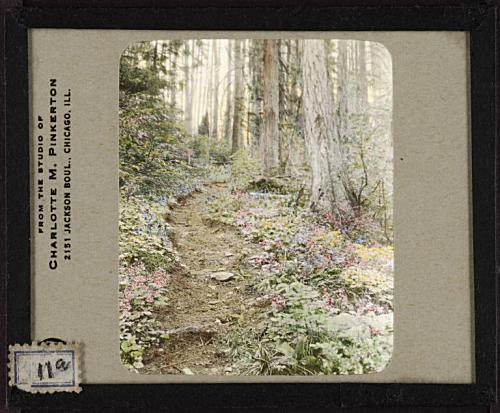
Pack trail through forest
Walter McClintock Glass Lantern Slides
_______________________
Three Egyptian Poets
edited by Maged Zaher
jacket
From: The empire of walls (cantos and stories)
Ahmed Taha
translated by Maged Zaher
Hole
Because you are crowded behind my mirror:
one face that is shooting — calmly — its looks
like assassins shoot their bullets:
one
after
the
other
The bullet jumps:
one street after another
one year after another
on some night, it will penetrate the head
on another night, it will penetrate the heart
and on a third night, it will penetrate the genitals
This is why
I have to rest now
I have to build a wall after a wall
and kneel
behind my kingdom
as if I were the last emperor
...(more)
_______________________
Towards a Real Archaeology of Knowledge
Justin E. H. Smith
(....)
In its indifference to the distinction between textuality and non-textuality --it digs things up and 'reads' them, whether they have letters written on them or not-- archaeology provides a model of the sort of approach to the human sciences that I believe could greatly help to overcome their estrangement from the natural sciences. Archaeology as traditionally conceived --before post-processualism came in and destroyed its scientific aspirations in exactly the same way that post-structuralism destroyed the aspirations of anthropology, and deconstruction the aspirations of textual studies-- cannot fail to see human culture as a particular kind of natural excrescence, one that eventually sinks back into the earth and intermingles again with the stuff of nature against which it set itself up in opposition for a short while. In this sense, unlike the academic discipline of history as currently conceived, archaeology cannot set up a buffer zone out of the non-textual human past ('prehistory') that preserves a distance between the proper domain of the humanists, on the one hand, and on the other hand the natural world studied by 'scientists'. If we abandon the prejudice that textual traces are a uniquely special sort of trace of the human past, then palaeography may be conceived in turn as as a particular branch of archaeology: the kind that deals with inscriptions on paper and in similar media.(....)
The history of philosophy, on this approach, would be the archaeology of one small subset of one particular kind of material traces left from the past. This branch of study would require special training in order to develop the ability to recognize a certain kind of subtle thoughts from a certain sort of traces, but it would not be fundamentally different from the study of other such traces, and would be no less neglectful of the holistic and environmental forces that went into shaping them. That would be a real archaeology of knowledge, and it would take us a long way towards solving the two-cultures problem (of which the analytic-continental rift is a local symptom)....(more)
_______________________

Walter McClintock Glass Lantern Slides
Beinecke Rare Book and Manuscript Library:
Digital Images & Collections Online
_______________________
Two, Three, Many Wikileaks
Peter LaVenia
Much has been made of Wikileaks as reaction to the craven complicity of the mass media to the state. This is undoubtedly true, but again misses the point. Noam Chomsky pointed out long ago that the media, privately run and owned by corporate executives, has always been a gatekeeper and a fundamental part of industrial society. Reporters do not only desire access to the state, preventing them from consistently acting as a check on the oligarchs; the media is a pillar of the modern state. It has as much interest in the state's survival (profits, elite status itself) as Wall Street or Barack Obama. (....)
Wikileaks was, thus, always a latent possibility with the advent of the Internet and direct mass information exchange worldwide. Like any other anti-systemic movement, it only took a group of committed people to organize and exploit that possibility. It is, then, up to those committed to radical democracy and egalitarian social change to extend the gains made by Wikileaks by proliferating its example and encouraging the growth of transparency via document dumps at all levels. A world where all levels of government and the economy would have to be wary of exposure is one where the rank-and-file would no longer be met with opaque silence about the inner-workings of government, but could begin to take the oligarchs and plutocrats to task, the first step in a truly democratic worldwide revolution. Bureaucracy's wall of mystique will be shattered, and the demos will wrest control away from the officials and the elected representatives who rely on secrecy to cut deals, divide the population, and keep the masses dis-empowered.
It is not often that the wheels of history give us the potential to swing the pendulum toward democratic rule and a curtailment of elite power. We have such a chance now, and it is up to us to take advantage of it. Let a thousand Wikileaks bloom - let us build the democracy of tomorrow, today....(more)
_______________________
The brain within its groove
Runs evenly and true;
But let a splinter swerve,
'T were easier for you
To put the water back
When floods have slit the hills,
And scooped a turnpike for themselves,
And blotted out the mills!
-
Emily Dickinson

narrows lock
photo - mw
_______________________
6 Poems
Agnieszka Kuciak
translated by Ewa Chruściel & Eliżbieta Kotkowska
exchanges
from
Et in Arcadia
Agnieszka Kuciak
translated by Ewa Chruściel
(....)
Your letter’s found me again among words.
How are things? The whir of dictionaries.
Layer after layer I scrape the darkness
From a temple fresco. Or I travel
to the amiable antipodes in a small
paper boat. Again among words.
I’ve got loads to do, because the true spells
are written in a tongue which does not exist.
I know they exist, because I experience
daily miracles: he lives
and the beast returns to the sea.
Bright morning are fragrant with spring
I learn a tongue which does not exist.
_______________________
Hackwork
eXchanges Journal of Literary Translation
Spring 2010
The University of Iowa
Mémoires of Translation
Lawrence Venuti
exchanges
For more than thirty years I have worked as a literary translator. Not the most compelling gambit to open a memoir, I admit, even if frankness fits the genre. To introduce oneself as a translator is less likely to elicit rapt attention than a quizzical look, possibly a yawn. “Literary” might lend some glamour, but only if it raises the expectation of gossip about foreign writers or an inside track into their writing. Yet “translator” threatens to dull any glimmer of interest with a vague sense of drudgery, mere hackwork. Lurking at the back of readers’ minds, regardless of their education or their profession, lies a question that politeness alone stops them from asking: Why devote so much time and effort to something that is less than original, that is not your own writing?
Today originality continues to be a commanding obsession in every cultural form and practice, even though--or because--replication is everywhere apparent. Original authorship, the foundation of copyright law, is so closely linked to money that lawyers scramble to hunt down infringement even in a medium they can least control: the Internet. How can translators hope to achieve a presence to be reckoned with, whether culturally or financially, merely by translating? Their fate is to be the invisible men and women of literature. Unless, that is, they speak out about what they do and contribute to an understanding of its nature and value.
Especially in the United States, where relatively few translations are published, even fewer are reviewed as translations, and only an infinitesimal receive any recognition as literary works in their own right. When readers give any thought to translation, they tend to imagine it as mechanical, something that a computer might do, given the right software. Or they view it as esoteric, trafficking in a knowledge they don’t possess (namely a foreign language), uncertain whether to apply the term “art” or “craft,” honorifics that, in any case, fail to illuminate. Translation occupies a unique place in our culture: it is a kind of writing where, as a rule, misunderstanding meets neglect....(more)
_______________________
I met a lady in the meads,
..Full beautiful, a fairy's child;
Her hair was long, her foot was light,
..And her eyes were wild.

Dante Gabriel Rossetti
1848
John Keats: La Belle Dame sans Merci: A Ballad
variously illustrated
presented by Tom Clark
_______________________
Six Selections by the Oulipo
The New Media Reader
Noah Wardrip-Fruin and Nick Montfort
ifile pdf
"Looming over the development of the literary machine in the last century stand the smiling members of the Oulipo (Ouvroir de Littérature Potentille, Workshop for Potential Literature). The ouvroir of the group's name is not a workshop of the Bread Loaf or Bennington sort, but a knitting room, a place where procedural effort produces a tangible textile, or in this case textual, outcome. This knitting circle is not primarily about producing texts, however-it is potential literature, not literature, that its members fashion. As Franēois Le Lionnais wrote in the group's first manifesto, an ordinary literary work is the result of rigorous constraints in areas such as vocabulary and syntax, novelistic or dramatic convention, poetic meter and form, and so forth. The idea of potential literature is to both analyze and synthesize constraints-drawn from current mathematics as well as from older writing techniques that never entered the literary mainstream."
One Hudred Thousand Billion Poems and “A Story as You Like It”
Raymond Queneau
“A Brief History of the Oulipo”
Jean Lescure
“For a Potenteial Analysis of Combinatory Literature”
Claude Berge
“Computer and Writer: The Centre Pompidou Experiment”
Paul Fournel
“Prose and Anticombinatorics” by Italo Calvino
_______________________
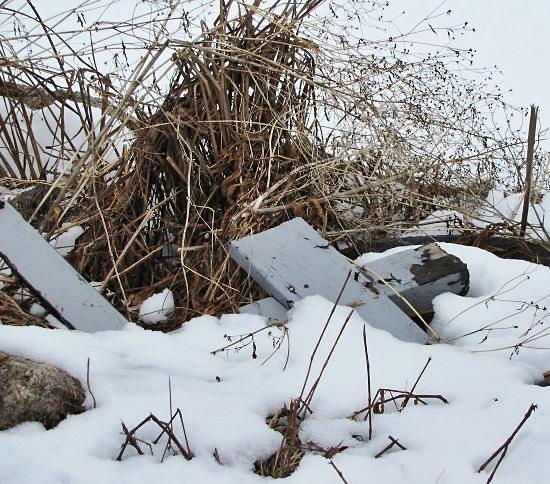
Westport marina
photo - mw
_______________________
... I for one am in favor of giving Assange the Médaille militaire, the Noble Prize, 15 virgins in paradise and a billion in cash as a reward for his courage in doing damned well the only significant thing that can be done at this time -- momentarily fucking up government control of information. But "potentially stimulating a new age of U.S. government transparency," (BBC) it ain't."
- Joe Bageant
_______________________
5 Right-Wing Scumbags Bankrolling Dangerous (and Plain Weird) Conservative Causes
Brad Reed
... most of our political class and establishment media have bought into the meme that rich people are so super-special that if we hurt their feelings by making them pay the same amount in taxes that they paid in the 1990s, they will get so depressed they will lose the will to work and no one in the country will ever have jobs again.
While this idea may seem insane to all sane people, it’s actually one of many ideas promoted over the past several decades by wealthy right-wingers who have plunged significant sums of money into conservative think tanks, political candidates and advertising campaigns. You see, for some reason rich Americans aren’t content to have five yachts and a butler named Willivers -- rather, they seem obsessed with having the entire country leave red, white and blue smooch marks all over their rear ends.
And just who are these multimillionaire propagandists, you ask? Well, I’m sure you know all about the Koch brothers and Rupert Murdoch, since they’ve all been relatively high-profile lately. But there are plenty more right-wing sugar daddies out there....(more)
_______________________
A taxonomy for the suppression of dissent
Daniel Lemire
Corruption, outrage and whistleblowing
Brian Martin
via
_______________________

an accidental double scan of old slides
Xmas '57
originals by my father
_______________________
Theater of Images
Jacques Rancičre
mediafire pdf
...for the artist it is not a question of getting rid of the excess of images, but of drawing attention to their absence, the absence of certain images in the selection of what those in charge of the distribution of images consider to be interesting to show. The idea that there are "too many images" is actually the verdict of those masters, before being that of those who think they are criticizing them. It is the defect they are setting themselves the task of remedying. So the political artist's strategy is not to reduce the number of images, but to oppose one method of reducing it to another, one way of counting to another. _______________________
the sixth anniversary of if:book
_______________________
Letters to a Man Who Once Was My Child
Ares Demertzis
By the time you receive these letters you will have returned from your honeymoon, and they will not have interfered with the joyful moments of an event that should not be burdened by a heaviness of heart. I could have called rather than written, speaking frankly with you directly. I can assure you that I chose to write not out of cowardice, instead deciding to express myself on paper because conversation is ephemeral and when subsequently recalled, given to misunderstanding. The written word endures. Although motivation may be open to the interpretation of the reader, the deliberation of the writer remains intact, to be examined in detail on subsequent occasions if necessary.
If you in fact do read these letters to the end, you may find the need to return to them, and perhaps modify your opinion as to what provoked their writing, and whether there does indeed exist just cause in their content.
I will attempt to wound you as lightly as possible, but should you ultimately understand me, I imagine you will feel pain. It is best that you react in a conventional manner and be angry with me for the injury I must inflict. It will be so much more expedient, and bring you peace of mind....(more)
New English Review_______________________
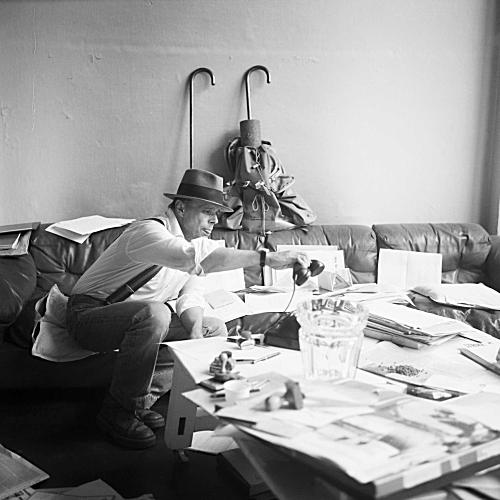
Joseph Beuys
1921 - 1986
Epson Kunstbetrieb
12 hours of Joseph Beuys music, lectures, & interviewsUbuWeb Sound

photo - mw
_______________________
The Archers of Thought
Spurious
(....)Do I think they thought of themselves as thought-archers, firing the arrows of their thought ahead for others to find and shoot on? They shot their arrows upward into the sky, upwards to the stars. They shot them into impassable thickets, into the surging ocean, the most barren desert. Or they shot them into their own breasts, laughing all the while. They shot the arrows of their thought into their own eyes and were drunk with laughter ... (....)
Still, there were some signs left for the vigilant: a few lines, a diagram, traced on the condensated wall of a sauna, photographed by a curious passerby; a philosophical glyph sketched with a toe in the Painted Desert, preserved on Flickr; a Blanchot-like fragment carved in the bark of a petrified tree nearly at the arctic circle;
a few words written in code in a tourist's guide to Shanghai; an except from an abandoned treatise posted on the comments box of an anonymous blog deep in the internet; notes towards an original idea written as marginalia in an abandoned blockbuster on a Tenerife beach;
a sketch of a philosophical system on the back of a bar receipt blowing about in the backdraft of lorries passing through the Karamwanken mountain tunnel; notes on what one former postgraduate would write, if he had written, if he could be bothered to write, scrawled slantwise across a guest book in a B&B on Krk island;
some scattered remarks towards a decisive rebuttal to the philosophy of immanence, taken down verbatim in the diary of a drunk and non-comprehending companion; a snatch of Hoelderlin style poetic philosophy translated into Inuit as part of a translation exercise in an Arctic TEFL class;...(more)
_______________________
In the Colosseum
(Tom Waits/K. Brennan)
This one's for the balcony
And this one's for the floor
As the senators decapitate
The presidential whore
The bald headed senators
Are splashing in the blood
The dogs are having someone
WHo is screaming in the mud
In the colosseum tonight
Now it's raining and it's pouring
On the pillaging and goring
The constable is swinging
From the chains
For the dead there is no story
No memory no blame
Their families shout blue murder
But tomorrow it's the same
In the colosseum
(...)
No justice here, no liberty
No reason, no blame
There's no cause to taint the sweetest taste of blood
And greetings from the nation
As we shake the hands of time
They're taking their ovations
The vultures stay behind
In the colosseum, in the colosseum
In the colosseum tonight
...(more)

Tom Waits
b. December 7, 1949
photo - Jean-Baptiste Mondino
there's a blur drizzle down the plateglass
as a neon swizzle stick stirrin up the sultry night air
and a yellow biscuit of a buttery cue ball moon
rollin' maverick across an obsidian sky
as the busses go groanin' and wheezin',
down on the corner I'm freezin';
on a restless boulevard at a midnight road
I'm across town from EASY STREET
-
Tom Waits, Nighthawk Postcards (From Easy Street)
_______________________
Wu Ming on King: On Translating Stephen King into Italian
Susan Harris talks to a member of the collective known as Wu Ming
words without borders
(....)There are basically two kinds of novelists: those who care about translations, like Italo Calvino and Umberto Eco, because they're used to exploring foreign languages, and those who don't care, like Elmore Leonard or Uncle Stevie, because they're perfectly happy with inhabiting their native language, with no forays in other cultures and koines.
If you're a careful, attentive reader, you can tell one kind of writer from the other simply by reading. There's a prose that's translation-conscious, and a prose that is not. It can be a very subtle difference, but you can detect it. At least, I believe I can detect it. I hope I'm making myself understood here... King's English is very much self-contained, very much grounded in Americana. King's stories are usually set in places and milieux that are both quintessentially American and very particular, very singular, like some island off the coast of Maine, the New England countryside, etc. There are idioms, details, objects, and customs that can't be found anywhere else: kinds of food (e.g., nobody eats fiddleheads in Italy, they don't even have a specific name), pop culture references, etc.
WWB: Are you, and Wu Ming, translation-conscious?
WM1: Yes, we Wu Ming are extremely translation-conscious, while writing we always think: how will this be translated into English, or French, or Spanish? Sometimes we place landmines into the text, bombs that will explode only during translation. For example, in my novel New Thing, there are hidden rhymes that will appear only when those pages are translated into English....(more)
_______________________
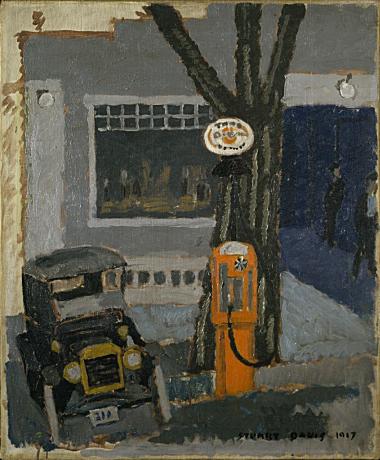
Garage No. 1
1917
Stuart Davis
b. December 7, 1892
_______________________
What is Julian Assange Up To?
Robert P. Baird
3quarksdaily
(....)
In their most stringent formulations, the Language poets of the 1970s and 80s set forth a politically charged theory that saw ordinary language as an ally of capitalist oppression. Steve McCaffery argued that “the structural support of both literacy and capitalist economy is reference,” and in “The Dollar Value of Poetry,” Charles Bernstein argued that
the social forces hold sway in all the rules for the ‘clear’ and ‘orderly’ functioning of language and Caesar himself is the patron of our grammar books…. Regardless of what is being said, use of standard patterns of syntax and exposition effectively rebroadcast, often at a subliminal level, the basic constitutive elements of the social structure--they perpetuate them so that by constant reinforcement we are no longer aware that decisions are being made.
Here “the ‘clear’ and ‘orderly’ functioning of language” plays the same part in the Language poets’ political mythology that the clear and orderly functioning of secrecy plays in Assange’s: both are invisible agents of Caesar, up to no good for as long as no one is looking.
It’s not surprising, then, that the Language poets’ prescriptions for remedy share much with Assange’s intended interventions. If, in a favorite Langpo motto, “language control = thought control = reality control,” then it was not only possible but imperative to fight the battle for a just reality at the level of language. Just as Assange wants to debase the currency of diplomatic secrecy, so the Language poets wanted to debase the clear and orderly functioning of language. At minimum, this strategy was supposed to resist capitalistic co-option, at best, the hope was that non-referential uses of language might actively oppose that co-option. Bernstein argued that
[Language] must be decentered, community controlled, taken out of the service of the capitalist project. For now, an image of the antivirus: indigestible, intransigent.
The language of debased currencies and capitalist projects suggests an even more direct analogy to Assange’s third-order strategy. Imagine, for a moment, the whole apparatus of political secrecy redescribed in economic terms: let capital take the place of secrets, banks replace governments, and the free exchange of goods, services, and capital take the place of the normal back-and-forth of diplomatic information. Trust is the essential and vulnerable element in both systems, the critical counter to isolation and inefficiency in both diplomacy and finance. A loss of trust among diplomatic actors leads to the breakdown of backchannels and the hoarding of secrets. A loss of trust among economic actors leads to credit collapses, the paradox of thrift, and money under the mattress.
Push this redescription a step further, and you can see that what Wikileaks is trying to do to international diplomacy is not so different from what the mortgage crisis did to the economy. The cable-dump is the diplomatic equivalent of Goldman Sachs’s famous ABACUS CDO, the one it designed to go bust....(more)
Julian Assange and the Computer Conspiracy; “To destroy this invisible government”Aaron Bady
_______________________
Wikileaks as Global Rhizome
Gaston Gordillo
Twelve theses on WikiLeaks
Geert Lovink, Patrice Riemens
eurozine
_______________________

Leon Kossoff
_______________________
Ping Poetics
Sandy Baldwin
electronicbookreview
(....)
If you know enough, think of the Traceroute project started almost ten years ago through the trAce Online Writing Center by Alan Sondheim, Sue Thomas, and others, a project that traced a singular image of the net itself. It would be enough to see this project as the exemplary instance of the becoming-literary of the literal, of the nettings and knottings of the net (Sondheim 2000). This is the unary mark and limit I am targeting, caught in the constraints of the internet's "physical layer."
This writing is not - or hardly at all, ever so little - a text. This is both a philosophical and political statement. Philosophically, I say text is woven towards alterity, writing reading towards others. For there to be a text, there must be intersubjective structures of communication. Text requires response. Even if there is no sign of response, this lack is the signifier of the Other's response. The other is written in and through text always in part and in whole my desire to the Other. Translate this into any discourse you want - that is, re-frame it in terms of institutions - and we can say that there is always a crowd in the text.(....)
The (k)not written into the net does not signify. Before the text is text I must already constitute the network, I must introject the net and the perception and knowledge of my being online as the condition of reading this text. I imagine the net. It is my fantasy. To read this writing as a text, towards all the others that compose it, to constitute me as a node in the net. The discovery that the text is the product of continual logging and processing in my computer means I read towards an anonymous other, a structural other that I posit or project across the space of the net.
I'm becoming hysterical. I'm hystericizing this discourse to you, I'm turning provocative....(more)
_______________________
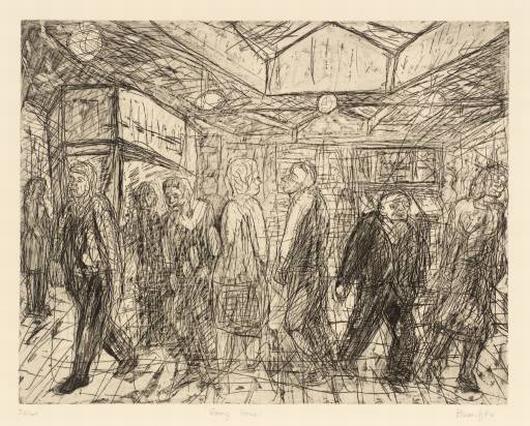
Going Home
1984
Leon Kossoff
b. December 7, 1926
_______________________
Earth Died Screaming
Tom Waits
Rudy's on the midway
And Jacob's in the hole
The monkey's on the ladder
The devil shovels coal
With crows as big as airplanes
The lion has three heads
And someone will eat the skin that he sheds
And the earth died screaming
The earth died screaming
While I lay dreaming of you
Well hell doesn't want you
And heaven is full
Bring me some water
Put it in this skull
I walk between the raindrops
Wait in Bug House Square
And the army ants
They leave nothin' but the bones
And the earth died screaming
While I lay dreaming of you
...(more)

Dory in Marsh
1965
Alfred Eisenstaedt
_______________________
In Cold Hell, In Thicket
Charles Olson
In cold hell, in thicket, how
abstract (as high mind is, as not lust, as love is) how
strong (as strut or wing, as polytope, as things are
constellated) how
strung, how cold
can a man stay (can men) confronted
thus?
Language even is made bitter, words
are made to taste like paper wars, get tossed up
like lead soldiers used to be
(in a child's attic) lined up
to be knocked down, as I am,
by firings from a spit-hardened fort,
as we are, here, from where we must go
God, that a man, as his acts must, as there is always a thing
he can do, he can raise himself, he raises
on a reed he raises his
Or, if it is me, what
he has to say
(....)
2
The branches made against the sky are not of use, are
already done, like snow-flakes, do not, cannot service
him who has to raise (Who puts this on, this dreaming of his flesh?)
he can, but how far, how sufficiently far can he raise the thickets of
this wilderness?
How can he change, his question is
these black and silvered knivings, these
awkwardnesses?
How can he make these blood-points into panels, into sides
for a king's, for his own
for a wagon, for a sleigh, for the beak of, the running sides of
a vessel fit for
moving?
How can he make out, he asks,
of this low eye-view,
size?
And archings traced and picked enough to hold
to stay, as she does, as he, the brother, when,
here where the mud is, hs is frozen, not daring
where the grass grows, to move his feet from fear
he'll trespass on his own dissolving bones, here
where there is altogether too much remembrance?
3
The question, the fear he raises up himself against
(against the same each act is proffered, under the eyes
each fix, the town of the earth over, is managed) is: __Who
am I?
Who am I but by a fix, and another,
a particle, and the congery of particles carefully picked one by another,
as in this thicket, each
smallest branch, plant, fern, root
- roots lie, on the surface, as nerves are laid open -
must now (the bitterness of the taste of her) be
isolated, observed, picked over, measured, raised
as though a word, an accuracy were a pincer!
this
is the abstract, this
is the cold doing, this
is the almost impossible
So shall you blame those
who give it up, whose who say
it isn't worth the struggle?
(Prayer
Or a death as going over to - shot by yr own forces - to
a greener place?
Neither
any longer
usable)
By fixes only (not even any more by shamans)
can the traceries
be brought out
...(more)
_______________________

Alfred Eisenstaedt
b. December 6, 1898
_______________________
There is no document of civilization which is not at the same time a document of barbarism. And just as such a document is not free of barbarism, barbarism taints also the manner in which it was transmitted from one owner to another. A historical materialist therefore dissociates himself from it as far as possible. He regards it as his task to brush history against the grain.
-
Walter Benjamin, On the Concept of History [ifile pdf]
h/t riley dog
_______________________
Realtime results for imwikileaks
Evading a shutdown, WikiLeaks mobilizes Twitter supporters
Blake Hounshell
In a bid to stay one step ahead of the governments, companies, freelance hackers trying to shut down its operations, WikiLeaks mobilized its vast base of online support Saturday by asking its Twitter followers to create copies of its growing archive of hundreds of classified State Department cables.
By late afternoon Eastern time, more than 200 had answered the call, setting up "mirror" sites, many of them with the name "wikileaks" appended to their Web addresses. They organized themselves organically using the Twitter hashtag #imwikileaks ...
Mass-mirroring Wikileaks
Wikileaks is currently mirrored on 355 sites
WikiLeaks tweets
Database: Canadian cables in WikiLeaks_______________________
Recombinant Theater and Digital Resistance
Critical Art Ensemble
Chapter 1 Electronic Civil Disobedience, Simulation, and the Public Sphere
Chapter 2 The Mythology of Terrorism on the Net
Chapter 3 The Promissory Rhetoric of Biotechnology in the Public Sphere
Chapter 4 Observations on Collective Cultural Action
Chapter 5 Recombinant Theater and Digital Resistance
Chapter 6 Contestational Robotics
Chapter 7 Children as Tactical Media Participants
Chapter 8 The Financial Advantages of Anti-copyright
_______________________
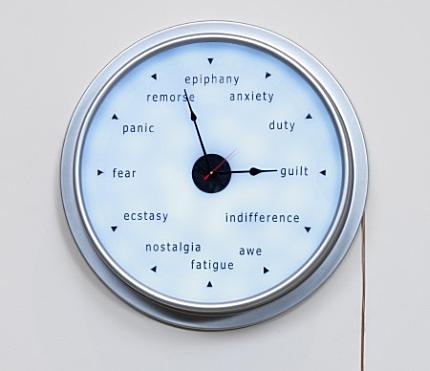
Raqs Media Collective
Infinite Th0ught
_______________________
The WikiLeaks Cables:
Small Revelations That May Cause a Big Idea to Take Hold
Arianna Huffington
_______________________
Wikileaks and the Global Geography of Cyberwarfare
Gaston Gordillo
Following a trend accelerated by 9/11, the language of "terrorism" is now being used to demonize any type of democratic activism on the web. The US government is increasingly sounding like the Chinese government in this regard, a worrisome move. And the struggle over Wikileaks also involves the attempts by various states to capture an elusive body moving in space, that of Julian Assange.
This is why the cyber-confrontations currently involving Wikileaks are so important for those of us who believe in a democracy not ruled by unaccountable corporate and state power. And it is equally important to keep in mind that this cyberwarfare is an extremely dynamic, mobile, horizontal process over the control of space. A reminder, in other words, that what we call "globalization" or "cyber-activism" involves not only flows of information moving across the world at dizzying speed but also the actual control of mundane spaces: such as computers sitting on a desk somewhere in Iceland, Finland, or Holland.
The struggle for a global democrary, therefore, should include demanding our respective national governments that it is imperative to protect these spaces from state attempts to crush free access to information that concerns us all. ...(more)
Space and Politics - Espacio y polķtica
Ensayos sobre el pulso espacial de la polķtica - Essays on the spatial pulse of politics
_______________________
Power and the Tiny Acts of Rebellion
Chris Hedges
There is no hope left for achieving significant reform or restoring our democracy through established mechanisms of power. The electoral process has been hijacked by corporations. The judiciary has been corrupted and bought. The press shuts out the most important voices in the country and feeds us the banal and the absurd. Universities prostitute themselves for corporate dollars. Labor unions are marginal and ineffectual forces. The economy is in the hands of corporate swindlers and speculators. And the public, enchanted by electronic hallucinations, remains passive and supine. We have no tools left within the power structure in our fight to halt unchecked corporate pillage.
The liberal class, which Barack Obama represents, was never endowed with much vision or courage, but it did occasionally respond when pressured by popular democratic movements. This was how we got the New Deal, civil rights legislation and the array of consumer legislation pushed through by Ralph Nader and his allies in the Democratic Party. The complete surrendering of power, however, to corporate interests means that those of us who seek nonviolent yet profound change have no one within the power elite we can trust for support. The corporate coup has ossified the structures of power. It has obliterated all checks on corporate malfeasance. It has left us stripped of the tools of mass organization that once nudged the system forward toward justice.
(....)
We have reached a point where stunted and deformed individuals, whose rapacious greed fuels the plunge of tens of millions of Americans into abject poverty and misery, determine the moral fiber of the nation. It is no more morally justifiable to kill someone for profit than it is to kill that person for religious fanaticism. And yet, from health companies to the oil and natural gas industry to private weapons contractors, individual death and the wholesale death of the ecosystem have become acceptable corporate business. The mounting human misery in the United States, which could lead to the sporadic bursts of anger we have seen on the streets of France, will be met with severe repression from the security and surveillance state, which always accompanies the rise of the corporate state. The one method left open by which we can respond—massive street protests, the destruction of corporate property and violence—will become the excuse to impose total tyranny. The intrusive pat-downs at airports may soon become a fond memory of what it was like when we still had a little freedom left....(more)
_______________________
Wikileaks, Julian Assange & Modern Anarchist Praxis
Nihilo Zero
_______________________
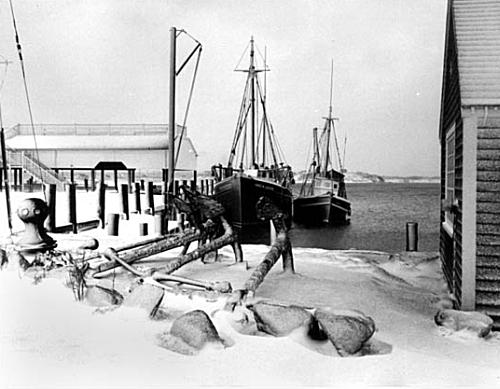
Town Dock
February 1952
Alfred Eisenstaedt
_______________________
The Quids
Laura (Riding) Jackson
(1901-1991)
The little quids, the million quids,
The everywhere, everything, always quids,
The atoms of the Monoton--
Each turned three essences where it stood
And ground a gisty dust from its neighbors' edges
Until a powdery thoughtfall stormed in and out,
The cerebration of a slippery quid enterprise.
Each quid stirred.
The united quids
Waved through a sinuous decision.
The quids, that had never done anything before
But be, be, be, be, be,
The quids resolved to predicate
And dissipate in a little grammar.
Oh, the Monoton didn't care,
For whatever they did--
The Monoton's contributing quids--
The Monoton would always remain the same.
A quid here and there gyrated in place-position,
While many essential quids turned inside-out
For the fun of it
And a few refused to be anything but
Simple, unpredicated copulatives.
Little by little, this commotion of quids,
By threes, by tens, by casual millions,
Squirming within the state of things--
The metaphysical acrobats,
The naked, immaterial quids--
Turned inside on themselves
And came out dressed,
Each similar quid of the inward same,
Each similar quid dressed in a different way--
The quid's idea of a holiday.
The quids could never tell what was happening.
But the Monoton felt itself differently the same
In its different parts.
The silly quids upon their rambling exercise
Never knew, could never tell
What their pleasure was about,
What their carnival was like,
Being in, being in, being always in
Where they never could get out
Of the everywhere, everything, always in,
To derive themselves from the Monoton.
But I know, with a quid inside of me,
But I know what a quid's disguise is like,
Being one myself,
The gymnastic device
That a quid puts on for exercise.
And so should the trees,
And so should the worms,
And so should you,
And all the other predicates,
And all the other accessories
Of the quid's masquerade.
_______________________
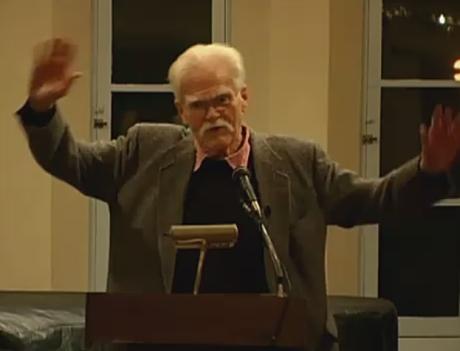
Robert Kelly reads at Bard Hall
video at Nomadics

Dear Monsieur Picasso
A Free eBook
Frederick Baldwin
zonezero
Open Culture
The best free cultural & educational media on the web
Free eBooks: Great Books on Your PC, iPhone, Kindle & Beyond
Free Audio Books: Download Great Books for Free
200 Free Movies Online: Great Classics, Indies, Film Noir & More
_______________________
The People Who Learned To Hide
Brad Zellar
Your Man For Fun In Rapidan
(....)
The stutterers, stammerers, and mutterers. The lonely and blank and broken. The angry and disenchanted. The unloved and unseen. The people for whom hope has been reduced to a persistent and almost entirely unpleasant instinct that grows more acidic by the year, yet which remains on some sad human level ineradicable. One connection, one real conversation, one person they could claim as a friend would be encouragement, if not a triumph.
They're everywhere. They feel like they are hiding. They feel like they're invisible. See them, why don't you? See them as they are, but also, if you're able, as they might once have been and --most importantly-- as they've always dreamed of being seen. Because this world is killing them, and they are killing the world, and every time we look through these people we are --all of us-- complicit in one of the greatest and most unpardonable crimes in human history....(more)
_______________________

Filling below Grade 5
construction of McKim Building
Edward Fletcher, 1860-1946 photographer
1888
Trustees' McKim Construction Photos
Boston Public Library's Photostream
_______________________
from
Sonnets To Orpheus
Rainer Maria Rilke
b. Dec. 4, 1875
Tanslated J.B. Leishman
(....)
Mirrors: at last to reveal in rhyme
the life that you really live!
You strange interstices of time,
as full of holes as a sieve.
Squandering the room you were left to keep,
wide as forests when twilight broods...
And the sixteen-pointed lustre's leap
through your virginal solitudes!
Sometimes you are full of portraiture:
welcoming some to your last recesses,
diverting others, shy and demure.
But the fairest will always remain inside
But the fairest will always remain inside
till through to the cheeks you are holding presses
Narcissus, released and clarified.
(....)
_______________________

photo - mw
_______________________
A Walk
Rainer Maria Rilke
Translated by Robert Bly
My eyes already touch the sunny hill.
going far ahead of the road I have begun.
So we are grasped by what we cannot grasp;
it has inner light, even from a distance-
and charges us, even if we do not reach it,
into something else, which, hardly sensing it,
we already are; a gesture waves us on
answering our own wave...
but what we feel is the wind in our faces.
_______________________
Utopian failing
Two magazine projects
Roman Schmidt
Translation by Saul Lipetz
eurozine
(....)An archaeology of the unpublished is thus posed with the task of unearthing the foundations of the established periodicals of our era. The first stratum contains the archived plans for the many journals that folded before their first issue; further below lies an almost incalculable number of ambitions that never made it as far as index cards in the archive, but were recorded at some point in footnotes, if that.
Those who wish to drill deeper require the instruments of psychoanalysis. It is unlikely, though, that there is much to discover down there that furthers our understanding of journals. Certainly, writer's block, moments of hesitation and the problematic biographies of project-makers all have their place in the intellectual economy of desire. But as we explore, we should not forget what is central. In magazine projects, it is the communal in communicating (Mit-Teilung) that is the key: the attempt to take advantage of historical constellations in order to open up a space for collective thought and action. What follows, then, is an account of two such projects: Walter Benjamin's and Bertolt Brecht's Krise und Kritik (Crisis and Criticism), and Revue internationale. ...(more)
_______________________

Framing the Special Libraries
construction of the McKim Building
1890-1895 (approximate)
Boston Public Library's Photostream
_______________________
Booking to the Future
Jamie E. Helgren
In response to a hot-button issue in the library profession nationwide, the Library Research Service (LRS), a unit of the Colorado State Library, conducted a survey to check current library professionals’ predictions for the future of the paper book. It’s probably no surprise that respondents thought the trend would be toward electronic formats. But for a variety of reasons, paper books refuse to die a quiet death.
_______________________
Archiving in the 21st Century
Anais Borja
World Policy Institute
_______________________
Archive Fever: Photography between History and the Monument [pdf]
Okwui Enwezor
_______________________
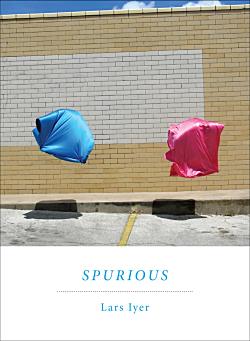
Spurious
Lars Iyer
Melville House Publishing
“Few writers can make personal gloom, the pervasive amorality of capitalism, cataclysmic climate change and the apocalypse comical, but Lars Iyer is one. Yet his lightness is deceptive. While Spurious may seem like Laurel & Hardy at the End of Times, it is also a profound philosophical rhapsody playing out the culmination of the religious narratives of East and West.”
-
Stephen Mitchelmore
_______________________
Saving Global Capitalism: Interrogating Austerity & Working Class Responses to Crises
Alternate Routes:
A Journal of Critical Social Research
Vol 22 (2011)
_______________________
The man who knows too much
Sreeram Chaulia
Asia Times Online
(....)If consent can be "manufactured", in American Noam Chomsky's famous phrase, it can also be discombobulated by gutsy conscientious objectors. Assange is basically a spin-off of the anti-war movement who is harnessing the technological platform of the Internet and combining it with the savvy of an intelligence apparatus to ferret out secrets through human moles in US military and diplomatic circles.
(....)
The thirst for "breaking news" and startling discoveries that make truth seem stranger than fiction should not mask the underlying purpose of Assange's musketeers - disempowering power-holders who are masters of doublespeak, and empowering the general public which has always been at a relative disadvantage owing to the absence of full information.
WikiLeaks is one of several freshly unleashed mediums of the information age through which societies can see through their state elites. The ruled have a better chance of coalescing around an issue like unpopular wars and engaging in collective action when they cannot be pooh-poohed as "uninformed" outsiders who cannot make choices in the supreme national or global interests. ...(more) via Doug Alder
_______________________
WikiLeaks diverts to European websites
CableSearch
Embassy Cables Fulltext Search
Wikileaks Mirrors
Julian Assange answers your questions
guardian
I think we should pay attention to what we learn from the leaks. What we learn, for example, is the kinds of things I’ve said. The most—perhaps the most dramatic revelation is the—I’ve already mentioned—the bitter hatred of democracy that is revealed both by the U.S. government—Hillary Clinton, others—and also by the diplomatic service.
- Noam Chomsky
There is a very simple reason WikiLeaks has sent a furious storm of outrage across the globe and it has very little to do with diplomatic impropriety. It is this: The public is uninformed because of inadequate journalism. Consumers of information have little more to digest than Kim Kardashian's latest paramour or the size of Mark Zuckerberg's jet. Very few publishers or broadcasters post reporters to foreign datelines and give them time to develop relationships that lead to information. Consequently, journalism is atrophying from the extremities inward and the small heart it has will soon become even more endangered.
So, long live WikiLeaks and Julian Assange. And if Pfc. Bradley Manning is the leaker, he deserves the Presidential Medal of Freedom.
-
James Moore
_______________________
Close the Washington Monument
Bruce Schneier
Securing the Washington Monument from terrorism has turned out to be a surprisingly difficult job. The concrete fence around the building protects it from attacking vehicles, but there's no visually appealing way to house the airport-level security mechanisms the National Park Service has decided are a must for visitors. It is considering several options, but I think we should close the monument entirely. Let it stand, empty and inaccessible, as a monument to our fears.
An empty Washington Monument would serve as a constant reminder to those on Capitol Hill that they are afraid of the terrorists and what they could do. They're afraid that by speaking honestly about the impossibility of attaining absolute security or the inevitability of terrorism -- or that some American ideals are worth maintaining even in the face of adversity -- they will be branded as "soft on terror." And they're afraid that Americans would vote them out of office if another attack occurred. Perhaps they're right, but what has happened to leaders who aren't afraid? What has happened to "the only thing we have to fear is fear itself"?
An empty Washington Monument would symbolize our lawmakers' inability to take that kind of stand -- and their inability to truly lead....(more)
_______________________
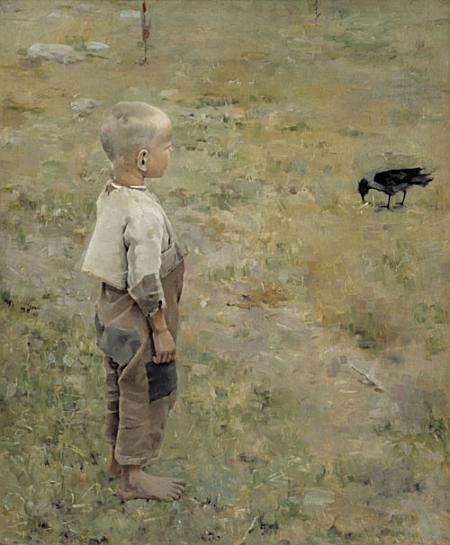
Boy with a Crow
1884
Akseli Gallen-Kallela
1865 - 1931
_______________________
A few questions we wouldn't be asking in a sane world
Dan Gardner
Ottawa Citizen
On Wednesday, in response to a question from the opposition, a minister of the Crown stood in the House of Commons and assured the honourable members that neither he nor the Prime Minister of Canada advocates the murder of Julian Assange.
Which is nice, I suppose. But it's also troubling.
How is it possible that in this most civilized of nations, in 2010, a member of Parliament felt the need to raise the matter? And while we're asking rhetorical questions that would not need to be asked in a sane world, how is it possible that the Republican party has so completely embraced aggression and brutality that almost all its leading figures feel the near-drowning of suspects is a valid interrogation technique and imprisonment without charge or trial is a legitimate practice that should be expanded?
Why is it that most people in the United States and elsewhere are not disturbed in the slightest that, despite abundant evidence, American officials who apparently committed heinous crimes in the war on terror will not be investigated and held to account, while WikiLeaks founder Julian Assange, who apparently did nothing illegal this week, is hunted to the ends of the Earth? And how in hell is it possible that when a former president of the United States of America admits he authorized the commission of torture -- which is to say, he admits he committed a major crime -- the international media and political classes express not a fraction of the anger they are now directing at the man who leaked the secrets of that president's administration?
I marvel at that paragraph. It would have been inconceivable even 10 years ago....(more)
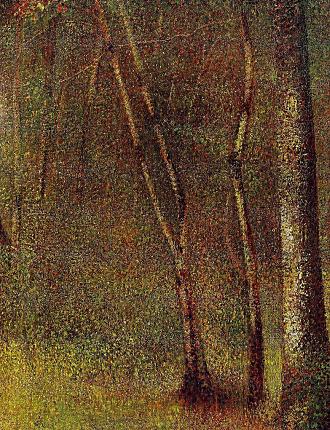
In the Woods
at Pontaubert
1881
Georges Seurat
b. Dec. 2, 1859
_______________________
Eric Ormsby on Cavafy's prose
bookforum
The poems of C. P. Cavafy, even when fragmentary or incomplete, have a stamp of finality about them; they seem permanently incised, like inscriptions recovered from antiquity. The same cannot be said of Cavafy's prose. His essays and reflections are restless, hesitant, darting. That makes them all the more precious. They reveal to us a Cavafy shorn of pince-nez and sleeve garters; still at a slight angle to the universe, as E. M. Forster memorably described him, but somehow more cozily akimbo. Peter Jeffreys, who last year edited the dry and amusing correspondence between Cavafy and Forster (The Forster-Cavafy Letters, published by the American University in Cairo Press), has here collected, edited, and translated Cavafy's prose writings dating from around 1882 through 1930, three years before the poet's death. The subjects are wildly eclectic. There are essays on lycanthropy, Persian manners, Greek misogyny, Shakespeare; there are gloomy short stories and prose poems in the manner of Baudelaire; there are "literary reflections" that include a fascinating essay on Browning, who was a powerful influence on Cavafy. A section of miscellaneous writings includes "Twenty-Seven Notes on Poetics and Ethics," a series of revealing aphorisms. Thirteen of these forty pieces were composed in English, a language Cavafy knew from childhood. The selection concludes with a self-portrait, written anonymously in French for a Parisian literary magazine, in which Cavafy calls himself "an ultra-modern poet, a poet of the future generations," and shamelessly praises his own "impeccable style" and "perfect sentences."...(more)
_______________________
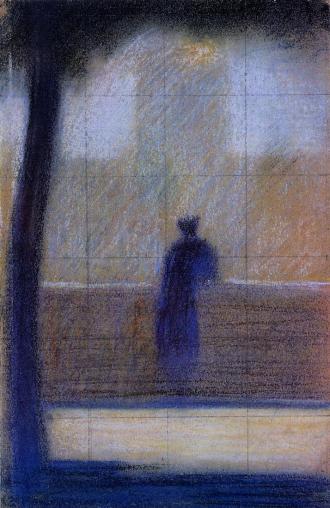
Man Leaning on a Parapet
1879-1881
Georges Seurat
_______________________
Jarry Story Breakdown
John Latta
Isola di Rifiuti
... To confront the stony void. Whence one might slip under the lip of earth. Giorgio Agamben (The Man Without Content):
In Les fleurs de Tarbes, Jean Paulhan takes as his premise a fundamental ambiguity in language—namely, the fact that it is constituted on the one hand by signs that are perceived by the senses, and on the other by ideas associated with these signs in such a way as to be immediately evoked by them—and makes a distinction between two kinds of writers. There are the Rhetoricians, who dissolve all meaning into form and make form into the sole law of literature, and the Terrorists, who refuse to bend to this law and instead pursue the opposite dream of a language that would be nothing but meaning, of a thought in whose flame the sign would be fully consumed, putting the writer face to face with the Absolute. The Terrorist is a misologist, and does not recognize in the drop of water that remains on his fingertips the sea in which he thought he had immersed himself; the Rhetorician looks to the words and appears to distrust thought.
One hauls things “out” of the continuum, word’d bibelots (jewels of thinking in commonplace duds) or gaud’d ornamental words (dragging, one is certain, something like thinking along behind). Fire and water, each capable of extinguishing the other. (Think, though, of Rémy de Gourmont’s “verbal amnesia,” how “men think in ready-made sentences . . . Words fail to arrange themselves into any new positions. They are presented in the same familiar order in which the writer’s memory received them.”) Or, I keep thinking about Alfred Jarry. How he carry’d a Bulldog pistol. How Ossip Zadkine sculpt’d him writing (notebook splay’d out across the handlebars of Jarry’s beloved bicycle), pointing the Bulldog off behind into le néant. ......(more)
_______________________
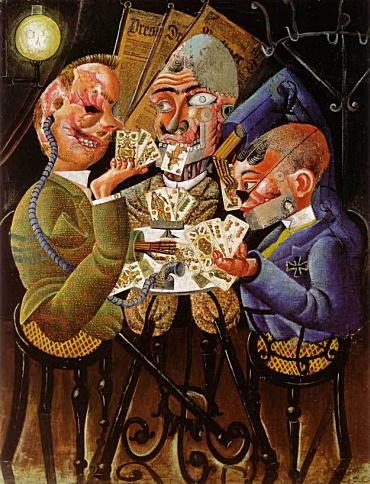
The Skat Players
1920
Otto Dix
b. Dec. 2, 1891
_______________________
Two essays by Julian Assange [pdf]
Conspiracy as Governance
State and Terrorist Conspiracies _______________________
On The Marshy Pastures
Georg Trakl
A man who walks in the black wind; the dry reeds
rustle quietly
Through the silence of the marshy pastures. In
the grey skies
A migration of wild birds move in ranks
Catty-corner over dark waters.
Insurgence. In the collapsing houses
Decay is fluttering out with black wings;
Crippled-up birches breathe heavily in the wind.
Evening in empty roadhouses. The longing for home
settles about
The delicate despair of the grazing flocks,
Vision of the night: toads plunge from silver waters.
Twenty Poems of Georg Trakl [pdf]
Translated by James Wright and Robert Bly
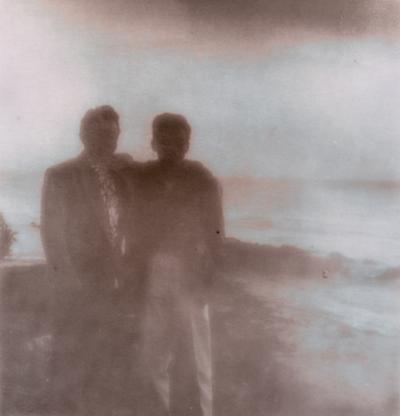
shore
originally uploaded by consumptive
Finding Lost Time
The past inside the present....
traces of golden moments....
life given to quiet places.
"a quite particular blog; a lesson in curation."
- James Luckett
_______________________
The Street of Crocodiles and Other Stories
Bruno Schulz
comments by John Self
(....)The way in which the stories rub up against one another, cross-pollinating and seeming to merge, is a result of Schulz’s powerful literary vision. It is this sense of a unifying intelligence which makes them more than ‘just stories’, and suggests a greater whole. Sound and vision is turned up to maximum: “thistles crackled in the fire of the afternoon”; “the golden field of stubble shouted in the sun”; “in the thick rain of fire the crickets screamed.” But where nature is high-contrast and brightly illuminated, the people – Jews of 1930s Europe – are presented otherwise. Uncle Mark, “small and hunched, with a face fallow of sex, sat in his grey bankruptcy, reconciled to his fate.” When cousin Emil sits down, “it seemed as if it were only his clothes that had been thrown, crumpled and empty, over a chair. His face seemed like the breath of a face – a smudge which an unknown passerby had left in the air.”
(....)
Time itself does not behave: “demented and wild, [it] breaks away from the treadmill of events and like an escaping vagabond, runs shouting across the fields.” People in The Street of Crocodiles are retreating or escaping into other worlds and other lives. At night, “there open up, deep inside a city, reflected streets, streets which are doubles, make-believe streets.” Reality, just one of many options, “is as thin as paper and betrays with all its cracks its imitative character.” Of all these, Schulz’s own transformation is most impressive. He took the grim reality of life in eastern Europe and exchanged it for the strangest fiction; he evaded his brutal death by escaping into literature....(more)
_______________________

Karl Schmidt-Rottluff
b. Dec. 1, 1884
_______________________
Frames of War: When Is Life Greivable
Judith Butler
ifile pdf
Precarious Life, Grievable Life
(....)
On the one hand, I am seeking to draw attention to the epistemological problem raised by this issue of framing: the frames through which we apprehend or, indeed, fail to apprehend the lives of others as lost or injured (lose-able or injurable) are politically saturated. They are themselves operations of power. They do not unilaterally decide the conditions of appearance but their aim is nevertheless to delimit the sphere of appearance itself. On the other hand, the problem is ontological, since the question at issue is: What is a life? The "being" oflife is itself constituted through selective means; as a result, we cannot refer to this "being" outside of the operations of power, and we must make more precise the specific mechanisms of power through which life is produced.
Obviously, this insight has consequences for thinking about "life" in cellular biology and the neurosciences, since certain ways of framing life inform those scientific practices as well as debates about the beginning and end of life in discussions of reproductive freedom and euthanasia. Although what I have to say may have some implications for those debates, my focus here will be on war---on why and how it becomes easier, or more difficult, to wage.
_______________________

Steaming Laundry, India, 2003
William Albert Allard
Untouchables work for a pittance washing clothes at dawn. The Hindu caste system forces 15 percent of India’s population to do jobs deemed “unclean”—anything that involves contact with bodily fluids, such as leatherwork and laundry or burying the dead. Untouchables suffer greatly from discrimination and violence.
(Text adapted from and photo shot on assignment for, but not published in, “India’s Untouchables,” June 2003, National Geographic magazine)
William Albert Allard: Five Decades
William Albert Allard's blog
_______________________
Why Not Declare Class War and be Done With It
David Macaray
... when you broach the dreaded subject of “class warfare” you get blank stares. When you try to demonstrate, through charts and graphs and scores of real-life examples, that the system is largely rigged to accommodate the wealthy and powerful—and that we face an unfortunate Us vs. Them dilemma—people back away.
There’s an old joke: An Oxford professor meets a former student and asks what he’s been up to. The student tells him he’s working on his doctoral thesis, whose topic is the survival of the class system in the U.S. The prof expresses surprise. “I didn’t think there was a class system in the U.S.,” he says. “Nobody does,” the student replies. “That’s how it survives.”(....)
While the rich obviously don’t want us rocking the boat, the disparity has become so alarming, even billionaire investor Warren Buffet broke ranks and acknowledged that the Bush-era tax cuts should be allowed to expire. Said Buffet, “If anything, the wealthiest Americans should pay even more in taxes."
Buffet aside, as long as those three catch-phrases—class warfare, social engineering, and redistribution of wealth—provoke the same Pavlovian responses from Republicans and Democrats alike, the rich have nothing to worry about. ...(more)
_______________________
The Coming Insurrection
The Invisible Committee
From whatever angle you approach it, the present offers no way out. This is not the least of its virtues. From those who seek hope above all, it tears away every firm ground. Those who claim to have solutions are contradicted almost immediately. Everyone agrees that things can only get worse. “The future has no future” is the wisdom of an age that, for all its appearance of perfect normalcy, has reached the level of consciousness of the first punks.
The sphere of political representation has come to a close. From left to right, it’s the same nothingness striking the pose of an emperor or a savior, the same sales assistants adjusting their discourse according to the findings of the latest surveys. Those who still vote seem to have no other intention than to desecrate the ballot box by voting as a pure act of protest. We’re beginning to suspect that it’s only against voting itself that people continue to vote. Nothing we’re being shown is adequate to the situation, not by far. In its very silence, the populace seems infinitely more mature than all these puppets bickering amongst themselves about how to govern it. The ramblings of any Belleville chibani contain more wisdom than all the declarations of our so-called leaders. The lid on the social kettle is shut triple-tight, and the pressure inside continues to build. From out of Argentina, the specter of Que Se Vayan Todos is beginning to seriously haunt the ruling class....(more)
_______________________
Market mysticism
Roman Frydman, Michael D. Goldberg
eurozine
_______________________
Crack Capitalism
John Holloway
We are all in a room with four walls, a floor, a ceiling and no windows or door. The room is furnished and some of us are sitting comfortably, others most definitely are not. The walls are advancing inwards gradually, sometimes slower, sometimes faster, making us all more uncomfortable, advancing all the time, threatening to crush us all to death.
There are discussions within the room, but they are mostly about how to arrange the furniture. People do not seem to see the walls advancing. From time to time there are elections about how to place the furniture. These elections are not unimportant: They make some people more comfortable, others less so; they may even affect the speed at which the walls are moving, but they do nothing to stop their relentless advance.
As the walls grow closer, people react in different ways. Some refuse absolutely to see the advance of the walls, shutting themselves tightly into a world of Disney and defending with determination the chairs they are sitting on. Some see and denounce the movement of the walls, build a party with a radical program and look forward to a day in the future when there will be no walls. Others – and I among them – run to the walls and try desperately to find cracks, or faults beneath the surface, or to create cracks by banging on the walls. This looking for and creation of cracks is a practical-theoretical activity, a throwing ourselves against the walls and also a standing back to try and see cracks or faults in the surface. The two activities are complementary: Theory makes little sense unless it is understood as part of the desperate effort to find a way out, to create cracks that defy the apparently unstoppable advance of capital, of the walls that are pushing us to our destruction.
Adbusters #92 Nov/Dec 2010
The Carnivalesque Rebellion Issue
_______________________
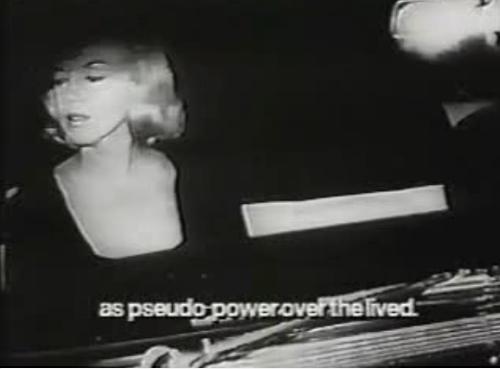
The Society of the Spectacle
Guy Debord
1973
(88 min, b&w), French w/English subtitles
ubu
La Société du Spectacle (Society of the Spectacle) is a black and white 1973 film by the Situationist Guy Debord based on his 1967 book of the same title. It was Debord's first feature-length film. It uses found footage and detournement in a radical criticism of mass marketing and its role in the alienation of modern society.(....)
The 88 minute film took a year to make and incorporates footage from feature films, industrial films, news footage, advertisements, and still photographs. The films include The Battleship Potemkin, October, Chapaev, The New Babylon, The Shanghai Gesture, For Whom the Bell Tolls, Rio Grande, They Died with Their Boots On, Johnny Guitar, and Mr. Arkadin, as well as other Soviet films.
Throughout the movie, there is both a voiceover (of Debord) and inter-titles from The Society of the Spectacle but also texts from the 1968 Occupation Committee of the Sorbonne, Machiavelli, Marx, Tocqueville, Émile Pouget, and Soloviev. Without citations, these quotes are hard to decipher, especially with the subtitles (which exist even in the French version) but that is part of Debord's goal "to problematize reception" (Greil and Sanborn) and force the viewer to be active. In addition, the words of some of the authors are detourned through deliberate misquoting.
_______________________
CTheory Interview
Annalee Newitz
Editor-in-Chief of io9.com
(....)One thing I've always strongly regretted about my education -- getting a Ph.D. in a humanities discipline -- was how little exposure I got to scientific thought. I felt like people in the humanities were making a lot of claims about problems with scientific reasoning and empiricism without actually understanding how useful those tools could be. And so as soon as I escaped from academia, I basically immersed myself in science -- especially, in the late 1990s, in computer science and technology. I became interested in biology a little later on.
When I was working on Bad Subjects as a graduate student and adjunct professor, I really thought that good cultural criticism could change the world. Now I know that good cultural criticism is nothing without good science to go along with it. It's foolish to imagine culture and science are a binary, if you're trying to be a thoughtful person and contribute usefully to public conversations about where we're headed as a civilization....(more)
_______________________
The WikiLeaks disclosure has revealed not only numerous government secrets, but also the driving mentality of major factions in our political and media class. Simply put, there are few countries in the world with citizenries and especially media outlets more devoted to serving, protecting and venerating government authorities than the U.S. Indeed, I don't quite recall any entity producing as much bipartisan contempt across the American political spectrum as WikiLeaks has: as usual, for authoritarian minds, those who expose secrets are far more hated than those in power who commit heinous acts using secrecy as their principal weapon.
(....)
Those who demand that the U.S. Government take people's lives with no oversight or due process as though they're advocating changes in tax policy or mid-level personnel moves -- eradicate him!, they bellow from their seats in the Colosseum -- are just morally deranged barbarians. There's just no other accurate way to put it. These are usually the same people, of course, who brand themselves "pro-life" and Crusaders for the Sanctity of Human Life and/or who deride Islamic extremists for their disregard for human life. And the fact that this mindset is so widespread and mainstream is quite a reflection of how degraded America's political culture is. When WikiLeaks critics devote a fraction of their rage to this form of mainstream American thinking -- which, unlike anything WikiLeaks has done, has actually resulted in piles upon piles of corpses -- then their anti-WikiLeaks protestations should be taken more seriously, but not until then.
(....) Glenn Greenwald
via Making Light
_______________________

One World
Lyonel Feininger
1953
_______________________
Desert Lights
Murathan Mungan
Translated from TurkishTurkish by Aron Aji
words without borders
The wind chisels out of sand
its own statues, its hours
hot crystals
splintered definition of light
set in ambush
a mirage aflame
coming toward a roundabout
the confidence of murders
summer fades, the sand, the heat
What matters in opportune moments
Is a steady aim, not to miss time
Poems written for the survivors
...(more)
_______________________
Electronic Theses and Dissertations Bibliography
Digital Scholarship
Open Access Publishing Since 1989
Transforming Scholarly Publishing through Open Access: A Bibliography has a Google Custom Search Engine
.....................................................
OpenThesis
_______________________
E-readers and tablets set to make the short story cool again
Jason Bennett
moby
|

 Janus Head
Janus Head

 The Age of Briggs & Stratton
The Age of Briggs & Stratton













































